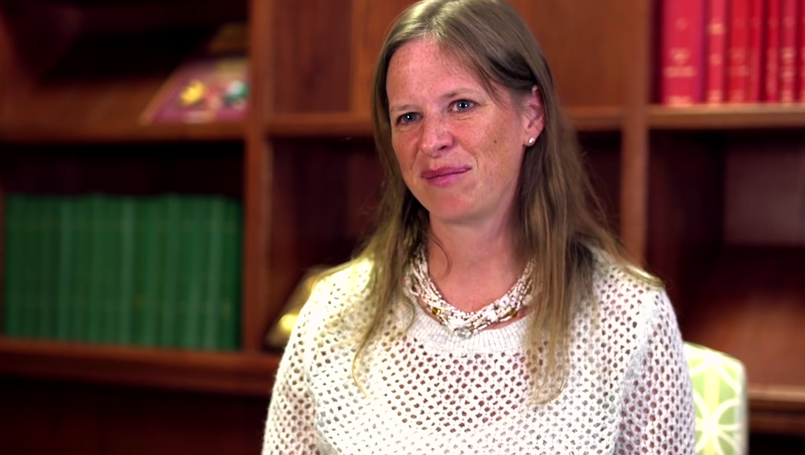Thursday, April 14, 2016

Beaumont stroke team encourages people to act FASTER
At 42, the last thing Jennifer Roma, of Beverly Hills, thought about was a stroke. Yet, in the fall of 2014, her life took a dramatic turn as she was driving her daughter to high school.
Mom’s not talking
Her husband, Tony, recalled,“My daughter, Maria, then 16, called me and said, ‘Mom’s not talking to me.’ She told her mother to pull over.”
Tony quickly got in his car and rushed to Maria’s school.
“When I got to the car, Jennifer’s face looked strange,” explained Tony. “Half of her face was not correct. She had a very dazed and confused look. She was definitely awake, and her eyes were open. She was moving very slowly and was not responsive. I knew something was wrong, so I called 911.”
EMS took Jennifer to the Comprehensive Stroke Center at Beaumont Hospital – Royal Oak where she was quickly evaluated by the stroke team. Jennifer was found to be a candidate for IV tPA and the medication was quickly administered. Tests completed after her admission to the hospital confirmed that she had experienced an ischemic stroke.
According to the National Stroke Association, the most common type of stroke is known as an ischemic stroke. It occurs when an artery in the brain is blocked and blood flow is disrupted. Almost 87 percent of all strokes are ischemic.
Stroke
Some facts that underscore the seriousness of stroke:
- Stroke is the fifth leading cause of death in the United States.
- Stroke is a leading cause of serious, long-term disability.
- 800,000 American a year experience a stroke.
- 6.8 million Americans live with the effects of stroke.
Time is key
“Time is brain. It is extremely important to seek medical attention immediately to determine if you are a candidate for stroke interventions,” said Anna Glaser, RN, stroke coordinator of the Comprehensive Stroke Center at Beaumont – Royal Oak. “If you suspect someone is experiencing stroke symptoms, the most important thing is to recognize the symptoms by thinking FASTER and to call 911 immediately.
Unfortunately, a majority of people do not recognize stroke symptoms and do not get to the hospital in a timely fashion. Additionally, more than half of stroke patients come to the hospital by car which results in delay of arrival to the hospital. Transportation by EMS or ambulance is best. Paramedics communicate with our medical staff while en route to the ER so that our stroke team can be waiting for the patient to arrive.”
Tony agreed, “My advice, if you ever come across someone with any of the stroke symptoms – timing is key for everything you do. Stay focused on what you need to do to get help.”
In some ways, Jennifer was fortunate:
- she was not alone
- she was driving a stick or manual transmission which takes more coordination
- her car stalled on the high school campus, not on a busy roadway or highway
- a policeman was nearby in the school parking lot
- she was a short distance from Beaumont – Royal Oak, a comprehensive stroke center
Jennifer said, “I didn’t realize I had a stroke at all. I experienced no pain, I was just tired.” After 10 days at Beaumont, she went home.
Recovery
“I thought I’d be better in days,” said Jennifer. “I could talk, but random words came out. My speech therapists said I didn’t know my letters. I had to relearn the alphabet. Speech therapy helped immensely. I participated five days a week for one hour a day.”
“I had a 3-year-old and a 5-year-old. I wanted to get better right away.”
“It would be nice if they (friends, family) knew the impact of aphasia. I try to explain my challenges with aphasia, but I’m not sure they always understand.”
Aphasia is a communication disorder that decreases the ability to process language. It can impair the ability to speak and understand others.
Eighteen months after her stroke, Jennifer and her family have learned the recovery process is ongoing. With progress comes setbacks and frustration.
Said Tony, “Jennifer gets frustrated. She works at it very hard (language/speech exercises). “I tell people I speak Jennifer.”
FASTER
To help people better recognize the warning signs and symptoms of stroke, Beaumont stroke specialists have developed the acronym FASTER.
